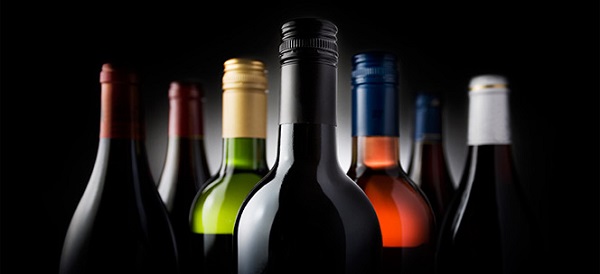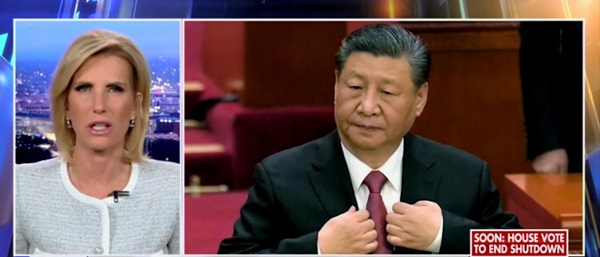National
Bureaucrat booze bill cost taxpayers $51,000 a month

From the Canadian Taxpayers Federation
By Ryan Thorpe
“Working” in government may be a thirsty profession, but a booze tab of $51,000 a month is definitely a problem.
And the problem gets worse when the bill is sent to taxpayers.
Global Affairs Canada bureaucrats spent more than $3.3 million on alcohol between January 2019 and May 2024, according to access-to-information records obtained by the Canadian Taxpayers Federation.
That means the department spent an average of $51,000 on beer, wine and spirits per month.
“The government is wasting our tax dollars faster than we can say bottoms up,” said Franco Terrazzano, CTF Federal Director. “Is any politician going to look a single struggling Canadian in the eye and try to justify the government spending thousands of dollars on wine tastings and cocktail parties?”
The largest single order from Global Affairs Canada came on Feb. 20, 2019, when bureaucrats in Washington, D.C., spent $56,684 on “wine purchases from special store.”
Other large orders include $9,815 worth of wine expensed by bureaucrats in Beijing, China, in March 2021, and $8,912 worth of wine expensed by bureaucrats in New Delhi, India, in May 2022.
Orders flown off to bureaucrats in far flung locales like Oslo, Tokyo, Moscow and London routinely run into the thousands of dollars per shipment.
At times, the records obtained by the CTF indicate the alcohol was purchased for a specific purpose – such as an official event or reception, or in one case, a $1,024 booze-filled “trivia night.”
But in many cases, the records provide no explanation beyond “bulk alcohol purchase” or “replenishment of wine stock.”
“The price of booze went up when Ottawa increased alcohol taxes, but that’s not a good excuse for these runaway bills,” Terrazzano said. “I like to party as much as the next guy, but maybe these bureaucrats could chill it on the cold ones when the government is more than $1 trillion in debt and taxpayers are struggling.”
On March 19, 2019, bureaucrats in San Jose, California, expensed $8,153 worth of booze. Just 12 days later, those bureaucrats spent another $2,196 on booze.
On Jan. 23, 2020, bureaucrats in Reykjavik, Iceland, bought $8,074 worth of booze, only to follow it up with a $2,849 alcohol purchase less than two months later.
Roughly $1.9 million of the spending came under the Canadian Alcoholic Beverages Abroad program, formerly known as the Canadian Wine Initiative.
The Canadian Wine Initiative was launched in 2004 with a mandate of supporting the country’s booze industry by promoting it abroad.
The rest of the spending was miscellaneous alcohol purchases billed to taxpayers. The records obtained by the CTF give no indication any of the $3.3 million spent on alcohol was recouped by taxpayers.
An access-to-information analyst at Global Affairs Canada told the CTF the department doesn’t centrally track its alcohol purchases. As a result, it’s possible Global Affairs Canada spent more than $3.3. million on booze.
The records obtained by the CTF only detail alcohol purchases from Global Affairs Canada. According to the government of Canada’s website, there are more than 200 other federal departments, Crown corporations and agencies.
“These bureaucrats seem like they’re having a good time, but what value are taxpayers getting from this huge booze bill?” Terrazzano said. “Billing taxpayers $51,000 a month for booze is mind boggling, but what’s even crazier is this tab is just for one government department.”
Business
Parliamentary Budget Officer begs Carney to cut back on spending

PBO slices through Carney’s creative accounting
The Canadian Taxpayers Federation is calling on Prime Minister Mark Carney to cut spending following today’s bombshell Parliamentary Budget Officer report that criticizes the government’s definition of capital spending and promise to balance the operating budget.
“The reality is that Carney is continuing on a course of unaffordable borrowing and the PBO report shows government messaging about ‘balancing the operating budget’ is not credible,” said Franco Terrazzano, CTF Federal Director. “Carney is using creative accounting to hide the spiralling debt.”
Carney’s Budget 2025 splits the budget into operating and capital spending and promises to balance the operating budget by 2028-29.
However, today’s PBO budget report states that Carney’s definition of capital spending is “overly expansive.” Without using that “overly expansive” definition of capital spending, the government would run an $18 billion operating deficit in 2028-29, according to the PBO.
“Based on our definition, capital investments would total $217.3 billion over 2024-25 to 2029-30, which is approximately 30 per cent ($94 billion) lower compared to Budget 2025,” according to the PBO. “Moreover, based on our definition, the operating balance in Budget 2025 would remain in a deficit position over 2024-25 to 2029-30.”
The PBO states that the Carney government is using “a definition of capital investment that expands beyond the current treatment in the Public Accounts and international practice.” The report specifically points out that “by including corporate income tax expenditures, investment tax credits and operating (production) subsidies, the framework blends policy measures with capital formation.”
The federal government plans to borrow about $80 billion this year, according to Budget 2025. Carney has no plan stop borrowing money and balance the budget. Debt interest charges will cost taxpayers $55.6 billion this year, which is more than the federal government will send to the provinces in health transfers ($54.7 billion) or collect through the GST ($54.4 billion).
“Carney isn’t balancing anything when he borrows tens of billions of dollars every year,” Terrazzano said. “Instead of applying creative accounting to the budget numbers, Carney needs to cut spending and debt.”
Education
Why classroom size isn’t the issue teacher unions think it is

This article supplied by Troy Media.
The real challenge is managing classrooms with wide-ranging student needs, from special education to language barriers
Teachers’ unions have long pushed for smaller class sizes, but the real challenge in schools isn’t how many students are in the room—it’s how complex those classrooms have become. A class with a high proportion of special needs students, a wide range of academic levels or several students learning English as a second language can be far more difficult to teach than a larger class
where students are functioning at a similar level.
Earlier this year, for example, the Elementary Teachers’ Federation of Ontario announced that smaller class sizes would be its top bargaining priority in this fall’s negotiations.
It’s not hard to see why unions want smaller classes. Teaching fewer students is generally easier than teaching more students, which reduces the workload of teachers. In addition, smaller classes require hiring more teachers, and this amounts to a significant financial gain for teachers’ unions. Each teacher pays union dues as part of membership.
However, there are good reasons to question the emphasis on class size. To begin with, reducing class size is prohibitively expensive. Teacher salaries make up the largest percentage of education spending, and hiring more teachers will significantly increase the amount of money spent on salaries.
Now, this money could be well spent if it led to a dramatic increase in student learning. But it likely wouldn’t. That’s because while research shows that smaller class sizes have a moderately beneficial impact on the academic performance of early years students, there is little evidence of a similar benefit for older students. Plus, to get a significant academic benefit, class sizes need to be reduced to 17 students or fewer, and this is simply not financially feasible.
In addition, not only does reducing class sizes mean spending more money on teacher compensation (including salaries, pensions and benefits), but it also leads to a decline in average teacher experience and qualifications, particularly during teacher shortages.
As a case in point, when the state of California implemented a K-3 class-size reduction program in 1996, inexperienced or uncertified teachers were hired to fill many of the new teaching positions. In the end, California spent a large amount of money for little measurable improvement in academic performance. Ontario, or any other province, would risk repeating California’s costly experience.
Besides, anyone with a reasonable amount of teaching experience knows that classroom complexity is a much more important issue than class size. Smaller classes with a high percentage of special needs students are considerably more difficult to teach than larger classes where students all function at a similar academic level.
The good news is that some teachers’ unions have shifted their focus from class size to classroom complexity. For example, during the recent labour dispute between the Saskatchewan Teachers’ Federation (STF) and the Saskatchewan government, the STF demanded that a classroom complexity article be included in the provincial collective agreement. After the dispute went to binding arbitration, the arbitrator agreed with the STF’s request.
Consequently, Saskatchewan’s new collective agreement states, among other things, that schools with 150 or more students will receive an additional full-time teacher who can be used to provide extra support to students with complex needs. This means that an extra 500 teachers will be hired across Saskatchewan.
While this is obviously a significant expenditure, it is considerably more affordable than arbitrarily reducing class sizes across the province. By making classroom complexity its primary focus, the STF has taken an important first step because the issue of classroom complexity isn’t going away.
Obviously, Saskatchewan’s new collective agreement is far from a panacea, because there is no guarantee that principals will make the most efficient use of these additional teachers.
Nevertheless, there are potential benefits that could come from this new collective agreement. By getting classroom complexity into the collective agreement, the STF has ensured that this issue will be on the table for the next round of bargaining. This could lead to policy changes that go beyond hiring a few additional teachers.
Specifically, it might be time to re-examine the wholesale adoption of placing most students, including those with special needs, in regular classrooms, since this policy is largely driving the increase in diverse student needs. While every child has the right to an education, there’s no need for this education to look the same for everyone. Although most students benefit from being part of regular academic classes, some students would learn better in a different setting that takes their individual needs into consideration.
Teachers across Canada should be grateful that the STF has taken a step in the right direction by moving beyond the simplistic demand for smaller class sizes by focusing instead on the more important issue of diverse student needs.
Michael Zwaagstra is a senior fellow with the Frontier Centre for Public Policy.
Troy Media empowers Canadian community news outlets by providing independent, insightful analysis and commentary. Our mission is to support local media in helping Canadians stay informed and engaged by delivering reliable content that strengthens community connections and deepens understanding across the country
-

 Daily Caller2 days ago
Daily Caller2 days agoLaura Ingraham’s Viral Clash With Trump Prompts Her To Tell Real Reasons China Sends Students To US
-

 Frontier Centre for Public Policy2 days ago
Frontier Centre for Public Policy2 days agoRichmond Mayor Warns Property Owners That The Cowichan Case Puts Their Titles At Risk
-

 Business2 days ago
Business2 days agoSluggish homebuilding will have far-reaching effects on Canada’s economy
-

 Business2 days ago
Business2 days agoMark Carney Seeks to Replace Fiscal Watchdog with Loyal Lapdog
-

 Business6 hours ago
Business6 hours agoParliamentary Budget Officer begs Carney to cut back on spending
-

 Censorship Industrial Complex22 hours ago
Censorship Industrial Complex22 hours agoEU’s “Democracy Shield” Centralizes Control Over Online Speech
-

 Addictions7 hours ago
Addictions7 hours agoCanadian gov’t not stopping drug injection sites from being set up near schools, daycares
-

 International24 hours ago
International24 hours agoIs America drifting toward civil war? Joe Rogan thinks so











